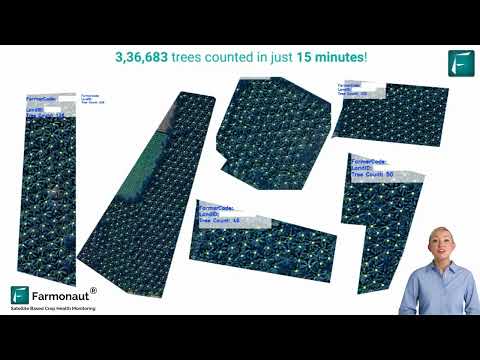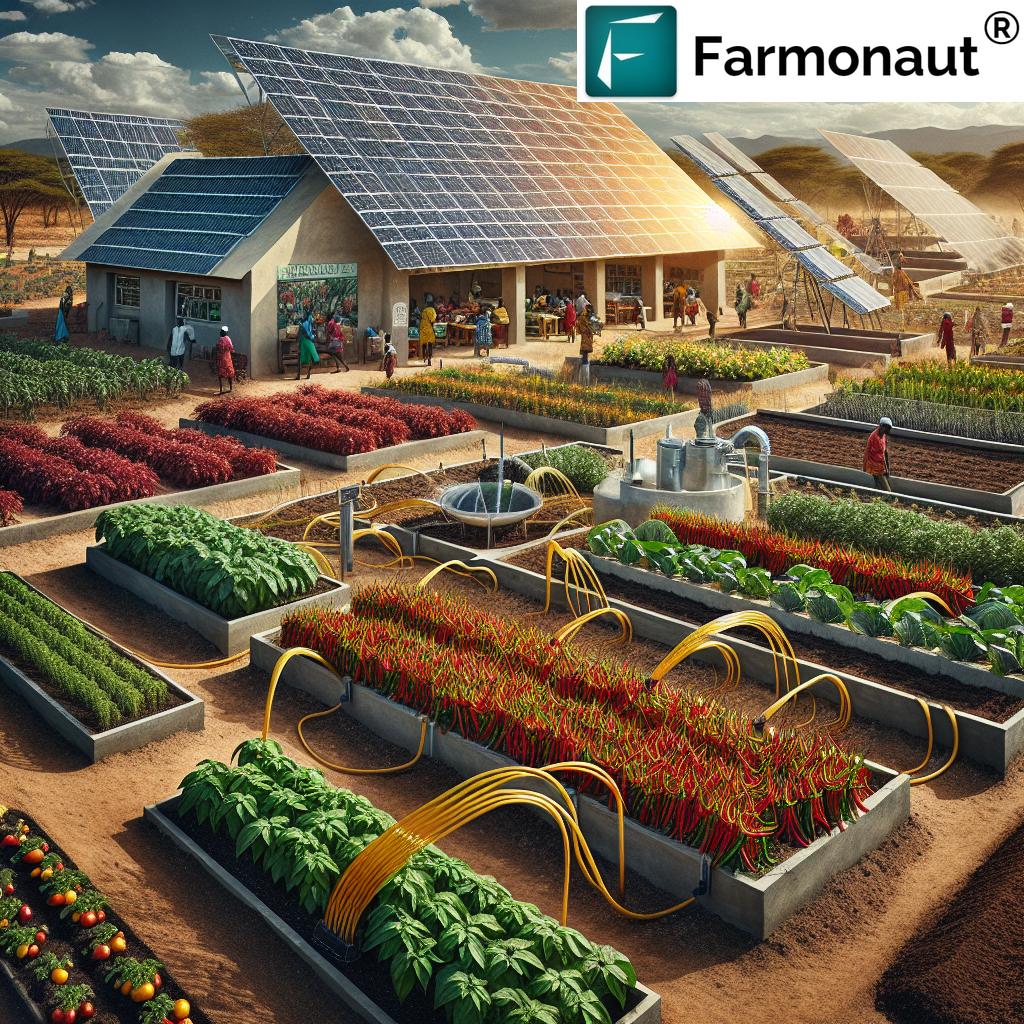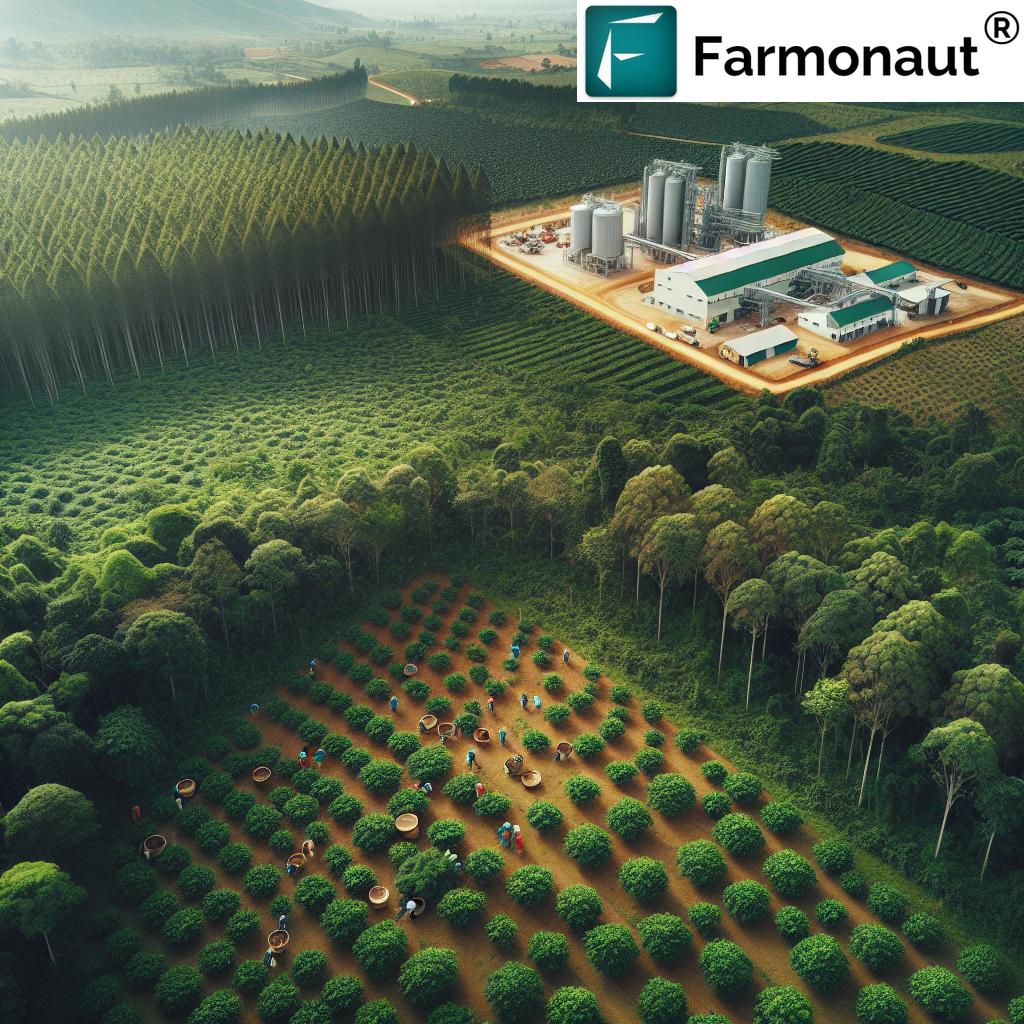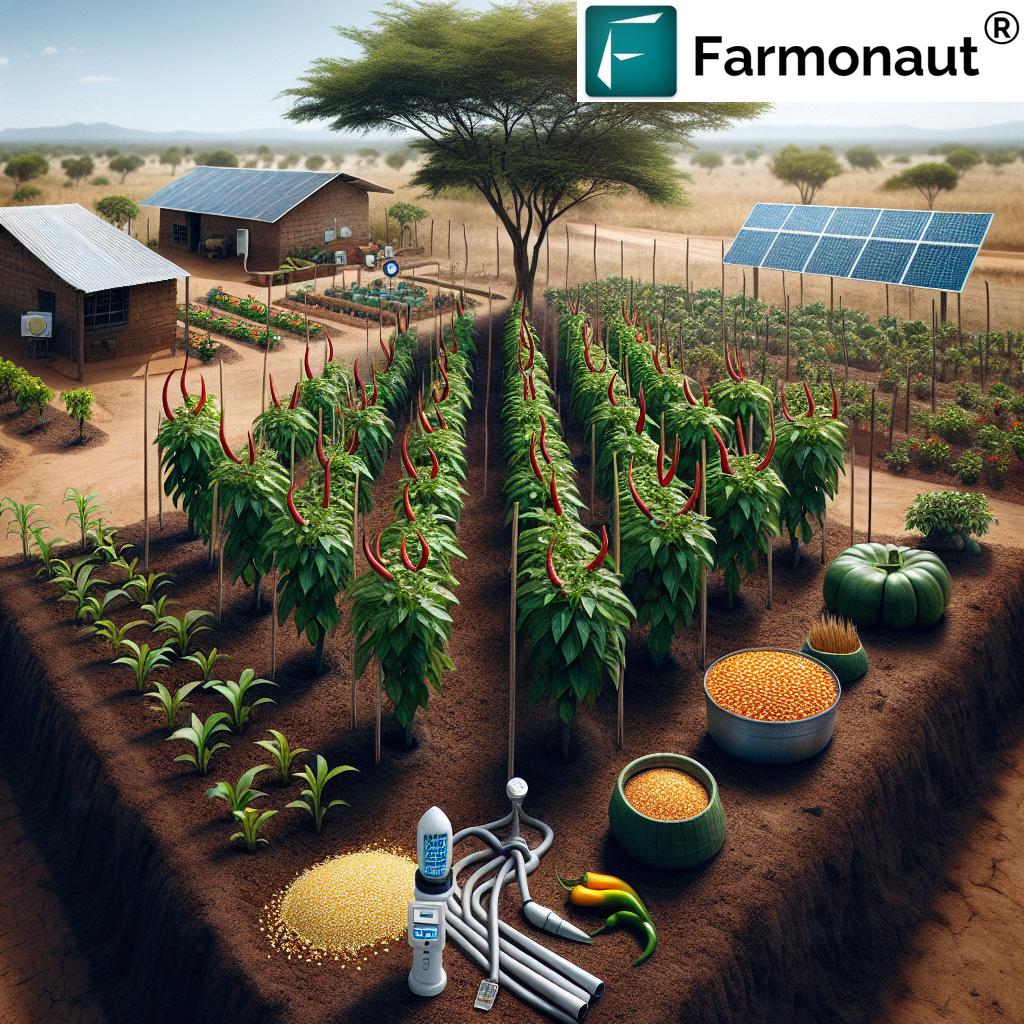Revolutionizing Sustainable Forestry in Malawi: Innovative Management Techniques for Environmental Conservation
“Malawi’s forestry initiatives have successfully planted thousands of hectares of forests despite environmental challenges.”
In the heart of southeastern Africa, Malawi is embarking on a transformative journey to revolutionize its forestry sector. As we delve into the innovative management techniques and collaborative efforts shaping the future of sustainable forestry in this nation, we’ll explore how cutting-edge technology and research are paving the way for environmental conservation on an unprecedented scale.
The Urgency of Sustainable Forestry in Malawi
Malawi’s rich forest ecosystems are facing significant challenges, from deforestation to climate change impacts. The need for sustainable forestry practices has never been more critical. In Mzuzu, a recent forestry research dissemination meeting brought together key stakeholders from across the sector, highlighting the urgency of adopting modern forestry management techniques.

Ronald Ngwira, Managing Director of Pyxus Agriculture Limited, emphasized the importance of collaboration among forestry experts, researchers, and government entities. The focus is clear: to address environmental challenges effectively and ensure the traceability and sustainability of Malawi’s forests.
Innovative Approaches to Tree Species Management
One of the cornerstones of Malawi’s sustainable forestry revolution is the innovative approach to tree species management. Researchers and forestry experts are focusing on both indigenous and exotic tree varieties to increase wood yield and accelerate growth rates. This dual approach aims to:
- Preserve Malawi’s native biodiversity
- Introduce resilient exotic species for timber production
- Optimize land use through strategic planting techniques
- Enhance carbon sequestration potential
By leveraging advanced research methodologies and genetic studies, Malawi’s forestry sector is developing tree varieties that not only grow faster but are also more resistant to pests, diseases, and changing climate conditions.
Technological Advancements in Forestry Management
The integration of technology in forestry management is a game-changer for Malawi. Innovative solutions are being employed to monitor forest health, track growth rates, and manage resources more efficiently. Here’s how technology is revolutionizing the sector:
- Satellite Imagery and Remote Sensing: These technologies provide real-time data on forest cover, helping detect deforestation and assess overall forest health.
- GIS Mapping: Geographical Information Systems allow for precise planning and management of forest resources.
- Drone Technology: Drones are used for aerial surveys, providing high-resolution imagery for detailed forest assessments.
- AI and Machine Learning: These tools analyze vast amounts of data to predict forest growth patterns and potential threats.
Farmonaut, a leading agritech company, is at the forefront of this technological revolution. Their satellite-based farm management solutions offer valuable tools for forestry management, including:
- Real-time crop health monitoring
- AI-based advisory systems
- Blockchain-based traceability
- Resource management tools
These advanced technologies are crucial in supporting Malawi’s efforts to combat deforestation and promote sustainable forestry practices.
Collaborative Research and Knowledge Sharing
“Collaborative research in Malawi focuses on both indigenous and exotic tree species to increase wood yield and growth rates.”
The success of Malawi’s sustainable forestry initiatives heavily relies on collaborative research and knowledge sharing. The recent meeting in Mzuzu exemplified this approach, bringing together:
- Forestry researchers
- Government officials
- Private sector representatives
- Educational institutions
- NGOs and international partners
This collaborative environment fosters innovation and allows for the rapid dissemination of new findings and best practices. By pooling resources and expertise, Malawi is accelerating its progress towards sustainable forestry management.
Challenges and Solutions in Forestry Management
Despite the significant strides made in sustainable forestry practices, Malawi faces several challenges:
- Pest infestations
- Tree diseases
- Wildfires
- Erratic rainfall patterns
To address these issues, innovative solutions are being implemented:
- Integrated Pest Management: Using biological controls and resistant tree varieties to minimize pest damage.
- Disease-Resistant Breeding: Developing tree species that can withstand common diseases affecting Malawi’s forests.
- Advanced Fire Detection Systems: Implementing early warning systems and improving firefighting capabilities.
- Water Management Techniques: Introducing drought-resistant species and efficient irrigation methods to combat erratic rainfall.
The Role of Agritech in Sustainable Forestry
Agritech solutions, such as those offered by Farmonaut, play a crucial role in supporting Malawi’s sustainable forestry efforts. These technologies provide:
- Accurate monitoring of forest growth and health
- Predictive analytics for resource management
- Efficient tracking of reforestation efforts
- Data-driven decision-making tools for forestry managers
By leveraging these advanced tools, Malawi’s forestry sector can make more informed decisions, optimize resource allocation, and improve overall forest management practices.
Explore Farmonaut’s API for advanced forestry management
Sustainable Wood Production and Alternative Energy Sources
A key aspect of Malawi’s sustainable forestry initiative is balancing wood production with conservation efforts. The focus is on:
- Sustainable timber harvesting techniques
- Promoting fast-growing tree species for wood production
- Developing agroforestry systems that combine tree cultivation with crop production
- Encouraging the use of alternative energy sources to reduce reliance on wood fuel
Pyxus Agriculture’s efforts in planting over 7,000 hectares of forests, including bluegum trees, demonstrate the commitment to sustainable wood production. These initiatives aim to meet the demand for wood, timber, and charcoal while preserving natural forests.
Environmental Conservation and Biodiversity Protection
Malawi’s sustainable forestry practices go hand in hand with environmental conservation efforts. The focus is not just on growing trees but on preserving entire ecosystems. Key initiatives include:
- Protecting indigenous tree species and their habitats
- Creating wildlife corridors to support biodiversity
- Implementing sustainable harvesting practices to maintain forest integrity
- Engaging local communities in conservation efforts
These efforts contribute to Malawi’s broader environmental goals, including climate change mitigation and biodiversity protection.
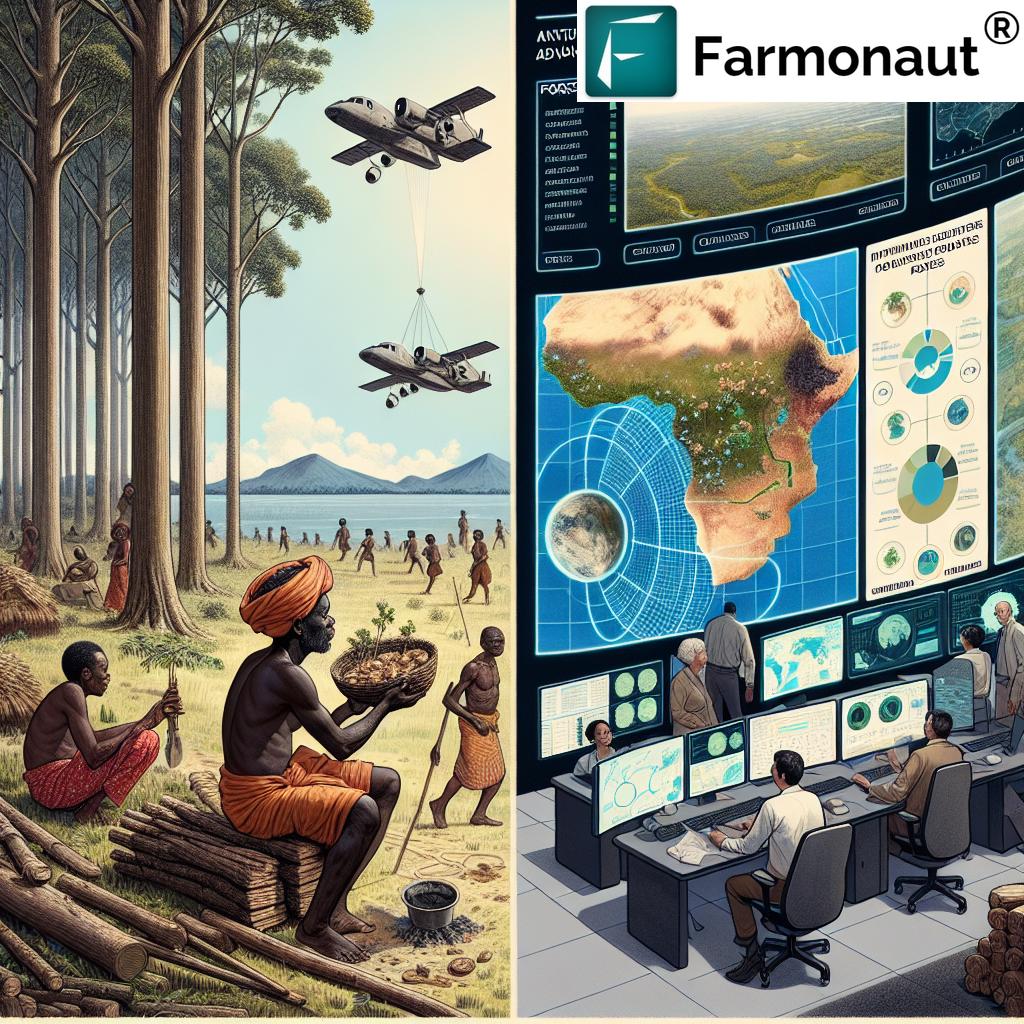
The Impact of International Partnerships
International partnerships play a vital role in advancing Malawi’s sustainable forestry initiatives. The USAID-Malawi partnership with Pyxus Agriculture is a prime example. This five-year forestry sustainability management program has already resulted in:
- Planting approximately 500 hectares of forests
- Plans to plant an additional 350 hectares in the near future
- Knowledge transfer and capacity building in the local forestry sector
- Access to international best practices and technologies
These partnerships bring not only funding but also expertise and innovative approaches that accelerate Malawi’s progress towards sustainable forestry management.
Education and Capacity Building in Forestry
A critical component of Malawi’s sustainable forestry revolution is education and capacity building. Efforts in this area include:
- Strengthening forestry education programs at universities and technical institutions
- Providing training workshops for forestry professionals on new technologies and practices
- Engaging local communities in forestry management and conservation efforts
- Developing extension services to disseminate knowledge to smallholder farmers and forest managers
By investing in education and skill development, Malawi is building a workforce capable of implementing and maintaining sustainable forestry practices for generations to come.
Access Farmonaut’s API Developer Docs for advanced forestry solutions
The Economic Impact of Sustainable Forestry
Sustainable forestry practices are not just environmentally beneficial; they also have significant economic implications for Malawi. The sector contributes to the economy through:
- Job creation in forestry management, research, and related industries
- Sustainable timber production for domestic use and export
- Development of eco-tourism opportunities
- Potential for carbon credit markets
By adopting innovative management techniques, Malawi is positioning its forestry sector as a key driver of sustainable economic growth.
Future Prospects and Ongoing Challenges
As Malawi continues to revolutionize its forestry sector, several key areas remain in focus:
- Scaling up successful pilot projects to national levels
- Addressing ongoing challenges such as illegal logging and forest encroachment
- Adapting to climate change impacts on forest ecosystems
- Balancing forest conservation with the growing demand for agricultural land
The road ahead requires continued innovation, collaboration, and commitment from all stakeholders in the forestry sector.
Comparative Analysis of Forestry Management Techniques in Malawi
| Management Aspect | Traditional Approach | Innovative Technique | Benefits of Innovation | Estimated Impact on Sustainability |
|---|---|---|---|---|
| Tree Species Selection | Focus on native species | Mix of indigenous and exotic species | Increased biodiversity and resilience | High |
| Planting Methods | Manual planting | Precision planting using GPS and drones | Improved survival rates and resource efficiency | Medium to High |
| Growth Monitoring | Periodic manual surveys | Satellite imagery and AI analysis | Real-time data for informed decision-making | Very High |
| Pest and Disease Control | Reactive chemical treatments | Integrated Pest Management (IPM) | Reduced chemical use and ecosystem balance | High |
| Fire Prevention | Basic firebreaks | Advanced detection systems and controlled burns | Early intervention and reduced fire damage | Very High |
| Water Management | Reliance on natural rainfall | Precision irrigation and water harvesting | Improved water use efficiency and drought resilience | High |
| Timber Harvesting | Clear-cutting | Selective harvesting and reforestation | Sustained forest cover and biodiversity protection | Very High |
The Role of Technology in Forestry Management
Technology is playing an increasingly crucial role in Malawi’s forestry management. Advanced tools and platforms, such as those offered by Farmonaut, are revolutionizing how forests are monitored, managed, and protected. Some key technological applications include:
- Satellite-Based Monitoring: Regular satellite imagery provides comprehensive data on forest cover, health, and changes over time.
- AI-Powered Analytics: Machine learning algorithms analyze vast amounts of data to predict forest growth patterns, identify potential threats, and optimize resource allocation.
- Mobile Applications: Field workers use mobile apps to collect and submit real-time data on forest conditions, streamlining reporting and decision-making processes.
- Blockchain for Traceability: Ensuring the transparent and ethical sourcing of timber products through immutable digital records.
These technological advancements are not just improving efficiency; they’re fundamentally changing how we approach forest conservation and management in Malawi.
Community Engagement in Sustainable Forestry
The success of Malawi’s sustainable forestry initiatives heavily depends on community engagement. Local communities are being empowered to participate in forest management through:
- Community-based forest management programs
- Training in sustainable harvesting techniques
- Participation in reforestation efforts
- Development of alternative livelihoods to reduce pressure on forests
By involving local communities, Malawi is ensuring that sustainable forestry practices are not just top-down policies but grassroots movements with widespread support and participation.
The Path Forward: Integrating Innovation and Tradition
As Malawi continues its journey towards sustainable forestry, the key lies in balancing innovative techniques with traditional knowledge. This integrated approach ensures that:
- Modern technologies complement rather than replace traditional practices
- Local wisdom is preserved and incorporated into new management strategies
- Sustainable practices are culturally appropriate and widely accepted
- The benefits of forestry management are equitably distributed among stakeholders
By fostering this balance, Malawi is creating a model of sustainable forestry that could serve as an example for other nations facing similar environmental challenges.
Conclusion: A Green Future for Malawi
Malawi’s commitment to revolutionizing its forestry sector through innovative management techniques and sustainable practices is setting a new standard for environmental conservation in Africa. By embracing technology, fostering collaboration, and engaging communities, the nation is not only addressing its immediate forestry challenges but also building a resilient, sustainable future for generations to come.
As we’ve explored throughout this article, the journey towards sustainable forestry in Malawi is multifaceted, involving various stakeholders, technologies, and approaches. From the adoption of advanced monitoring tools to the implementation of community-based management programs, every aspect of this revolution contributes to a greener, more sustainable Malawi.
The success of these initiatives will depend on continued investment, research, and collaboration. With the support of international partners, the expertise of local researchers, and the engagement of communities, Malawi is well-positioned to become a leader in sustainable forestry practices in Africa and beyond.
As we look to the future, the lessons learned and successes achieved in Malawi’s forestry sector will undoubtedly provide valuable insights for global efforts in environmental conservation and sustainable resource management. The revolution in Malawi’s forests is not just about trees; it’s about building a sustainable, resilient, and prosperous future for all.
Frequently Asked Questions (FAQ)
- What are the main challenges facing Malawi’s forestry sector?
The main challenges include deforestation, pest infestations, diseases, wildfires, erratic rainfall, and balancing conservation with the demand for agricultural land and wood products. - How is technology being used to improve forestry management in Malawi?
Technology is being used through satellite imagery, AI-powered analytics, mobile applications for data collection, and blockchain for traceability in timber products. - What role do international partnerships play in Malawi’s sustainable forestry efforts?
International partnerships provide funding, expertise, and access to advanced technologies, helping to accelerate progress in sustainable forestry management. - How are local communities involved in sustainable forestry practices?
Local communities are involved through community-based forest management programs, training in sustainable harvesting, participation in reforestation efforts, and development of alternative livelihoods. - What are some of the innovative tree species management techniques being used in Malawi?
Innovative techniques include focusing on both indigenous and exotic tree varieties, developing disease-resistant breeds, and implementing precision planting methods.



